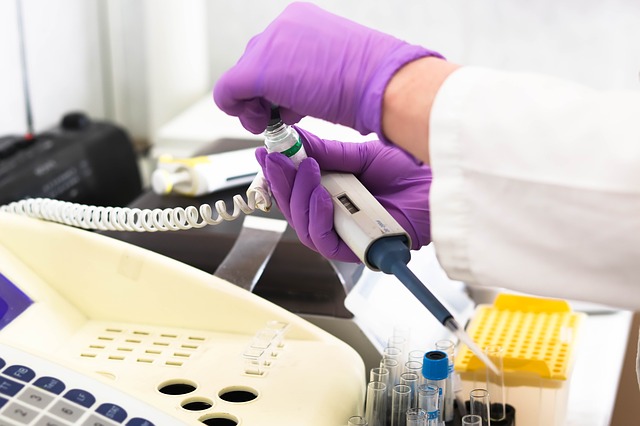In an era where advancements in technology are progressing faster than time and giving birth to cutting-edge medical equipment, the costs associated with them are soaring as well.
In fact, the maintenance of such equipment is more expensive than its ownership. Equipment leasing seems to be the only way out in such a scenario.
Equipment leasing is a simple procedure which allows a business enterprise or an individual to hire equipment on rent, either from a vendor or any leasing company. The owner can lease the equipment for a specific period of time and return them when the lease period expires. Alternatively, owners can choose to renew the contract.
The healthcare industry is well-known for its use of sophisticated equipment that can cost a fortune for the owners i.e. hospitals. According to Forbes, “new medical tech is responsible for 40 to 50 per cent in annual cost increases” and these costs ultimately make their way into the patient’s wallet.
On the other hand, most clinics and primary medical centres struggle with infrastructure deficits and end up compromising the quality of patient care. Again, leasing remains the most suitable option for them.
In this article, I will guide you through the basics of medical equipment leasing and discuss its requirements and main advantages. At the end of this article, you will be in a better position to decide on the next course of action for the infrastructure of your hospital.

How does medical equipment leasing work?
There is not much of a difference between leasing medical equipment and leasing a real estate property.
When you lease medical equipment, you will enter into a legal contract with an equipment distributor who will allow you to utilize the equipment without having to bear the cost of ownership.
If you choose to lease any medical equipment, you will be applying for a loan to pay for these assets over time. Some medical equipment can be leased on a ‘rent-to-own’ basis.
After the lease term is over and based on the terms of the agreement, a hospital can either return the equipment back to the lessor or choose to own the equipment outright.
Is it better to lease or rent medical equipment?
Leasing and renting are the two sides of the same coin. Both of them offer flexibility in a way that you don’t have to pay a huge lump sum amount in the beginning in order to own the equipment.
Leasing provides you with an opportunity to own the equipment after the agreement period is over. However, when you rent medical equipment, you’ll be making monthly payments to the contractor and it will prove to be an expensive affair in the end. So, be careful with equipment rentals.
Requirements for Leasing Medical Equipment
When you think about leasing medical equipment as a long term investment, there are certain requirements to be met. One of the most important considerations is your budget.
I am listing down some tips for outlining the budget of medical equipment in the leasing process.
- Make a checklist of the medical equipment required in each department of your hospital along with their quantities. This should justify the scope of service in the hospital and its estimated patient load.
- Outline the technical specifications and features of the major assets. It will help in determining the overall budget. This is especially true for capital intensive equipment like modular operation rooms, radiology equipment, etc.
The configuration of this medical equipment should align with:
- The level of care offered at the hospital.
- Patient segmentation (speciality-wise and category-wise).
- Latest trends in medical technology.
- The level of technology used in neighbouring hospitals.
- You can also consider a healthy mix of new and refurbished equipment as per the project requirements.
Chart out the timelines for funds disbursement at the beginning of every project so that the project is not stalled later on due to lack of funds.
The timelines for funds disbursement can be decided by considering the following factors:
1. Design requirements
There are certain classes of medical equipment that require special operating conditions, room sizes, and layouts. Examples of such equipment could be the Medical Gas Pipeline System (MGPS), Pneumatic Tube System (PTS), etc.
You should make it a point to convey these requirements to the vendor before finalizing the plans.
2. Delivery and installation time for major equipment
Installation of a modular operation theatre can stretch from two to four months. And you should plan the procurement accordingly.
3. Site readiness
Is your hospital site ready for all the installations? It is a good idea to segregate medical equipment in buckets based on their delivery schedule and site readiness.
Here is a delivery schedule that you can follow for your hospital:
MEDICAL EQUIPMENT DELIVERY SCHEDULE |
||
| Completion of Civil Work | Completion of Interior Work | Completion of Final Finishes |
| MGPS | Pathology | Plug & Play equipment |
| PTS | Radiology | Furniture |
| Modular OT | Central Sterile Supply Department | |
| Bed Head Panels | Blood Bank | |
Advantages of Leasing a Medical Equipment

1. Try out newer technology before making a heavy financial commitment
Many physicians and general practitioners (GPs) have a smaller practice when they are just starting out. They can’t devote their income to purchasing brand new medical equipment.
At times, even established hospitals aren’t ready to make a financial commitment until they are sure of the payoff. Equipment leasing helps healthcare professionals to try the latest technology without investing in it.
2. Emergency services will not be interrupted
We don’t live in a perfect world where everything works fine all the time. Some of the medical equipment needs to be repaired or replaced frequently.
This is a hurdle in providing emergency services to patients and the quality of care will be affected in the process. Equipment leasing can minimize or eliminate this problem completely.
Having leased equipment on-hand can allow you to provide healthcare services while the repairs are taken care of by the distributor.
3. You can improve your overall reputation
The hospital’s reputation can be linked to the availability and quality of medical services provided to patients.
Data from the University of Michigan Health System reveals that approximately 86 per cent of all patients admitted to hospital beds require infusion pumps. But if such equipment requires frequent maintenance, then it will be a nightmare for the patients.
Leasing the medical equipment for your facility will make your patients and their relatives feel confident about the line of treatment and boost your brand reputation in the long run.
4. Tax benefits
If you don’t know, most tax regulatory bodies classify payments made on leased equipment as tax-deductible, up to a certain amount.
You can retract the revenue back into your practice by claiming these deductibles. You also have the option to write off your payments as a tax expense rather than claim the depreciating value of the equipment.
Is it more cost-effective to lease or buy medical equipment and why?
Equipment leasing is by far the most feasible option for healthcare institutions. Apart from saving time and money, it can improve the quality of medical care to a great extent.
It is essential to consider the factors and requirements mentioned in this blog before making a final decision. You should do a background check on the equipment distributors before signing the legal papers with them.
Quality of equipment, market reputation, and customer support are some of the important items of such checks.
Josh Argenton is a well-known blogger who has been writing for the last several years. He has written blogs and articles on a wide range of topics including technology, health & beauty, sports, business, food, entertainment, home improvements and much more. His artistic background nurtures him in developing creative writing skill.
